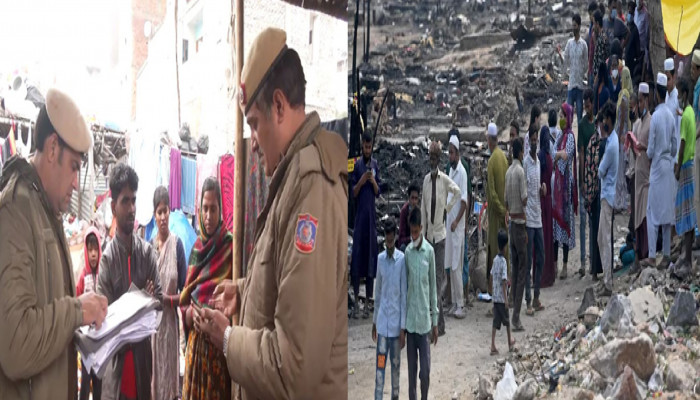Illegal migration reshaping Delhi’s demographics, disrupting electoral integrity: JNU report
- In Reports
- 04:43 PM, Feb 03, 2025
- Myind Staff
The social, political and economic environment of Delhi has been altered by illegal migration from Bangladesh and Myanmar, according to a report by Jawaharlal Nehru University (JNU). The 114-page research, "Illegal Immigrants to Delhi: Analysing Socio-economic and Political Consequences," described how political patronage facilitates migration and how it affects the infrastructure and economy of the city.
According to the report by India Today, political parties and their affiliates help immigrants register to vote. "The creation of fake identification documents undermines legal systems and electoral processes," it states. Researchers from the Tata Institute of Social Sciences (TISS) worked on the study, which compares migration patterns similar to those seen in Mumbai. The report showed the capital's religious composition has changed as a result of the illegal migration. "The demographic changes caused by migration have altered the religious composition of Delhi, with a notable increase in the Muslim population due to migration from Bangladesh. This has impacted the socio-political dynamics of the city," it reads.
BJP leader Sambit Patra slammed the AAP administration for the JNU report's conclusions, saying,"The report says that political patronage plays a crucial role in enabling a steady influx of undocumented Rohingyas and Bangladeshis, with AAP playing a significant part. It also highlights how these political parties are facilitating fake voter registrations for migrants." The economic difficulties associated with migration were emphasised in the report, especially in low-wage industries.
Construction and domestic labour are two industries where migrants find employment, which raises competition and influences pay levels. "Unauthorised settlements have resulted in overcrowding, unplanned urban expansion and strain on public services such as water, electricity, healthcare and education," it reads.
The survey states that neighbourhoods like Seelampur, Jamia Nagar, Zakir Nagar, Sultanpuri, Mustafabad, Jafrabad, Dwarka, Govindpuri, and others are where migrants tend to settle. "Illegal immigration to Delhi has significantly altered the city’s demographic landscape," according to the report. Noting that many migrants have now made their home in the city, it connected the migration trend to the Rohingya crisis of 2017.
In the report, the function of informal networks in migration was explained. "Migrants often rely on brokers, agents and religious preachers for housing and jobs," claimed the report. These networks create fake documents for money, helping migrants gain access to services and jobs. The warning highlights that these actions lead to the growth of slums and put extra strain on infrastructure. The report highlights an ongoing debate in Delhi about subsidies for refugees, including the Rohingyas. Critics of the Delhi government argue that offering benefits like healthcare, housing and education might attract more migrants and strain the city's resources. They also believe these measures could lead to an increase in undocumented migrants, making it harder for authorities to manage the situation.
"By providing such resources, Delhi risks attracting more undocumented migrants, further exacerbating the problem of illegal immigration," the report stated, highlighting these concerns. In addition to causing social and economic upheaval, the report connected unlawful migration to criminal networks engaged in human trafficking, passport forgery and smuggling. "The steady influx of undocumented migrants has strengthened criminal networks, feeding into illegal activities," it reads.
According to the report, Delhi's demographics have changed as a result of these migration trends, with a rise in the Muslim community in particular. "The religious composition of Delhi has shifted due to migration from Bangladesh," it stated. The report concludes that these changes have an impact on the political climate and governance issues of the city.







Comments